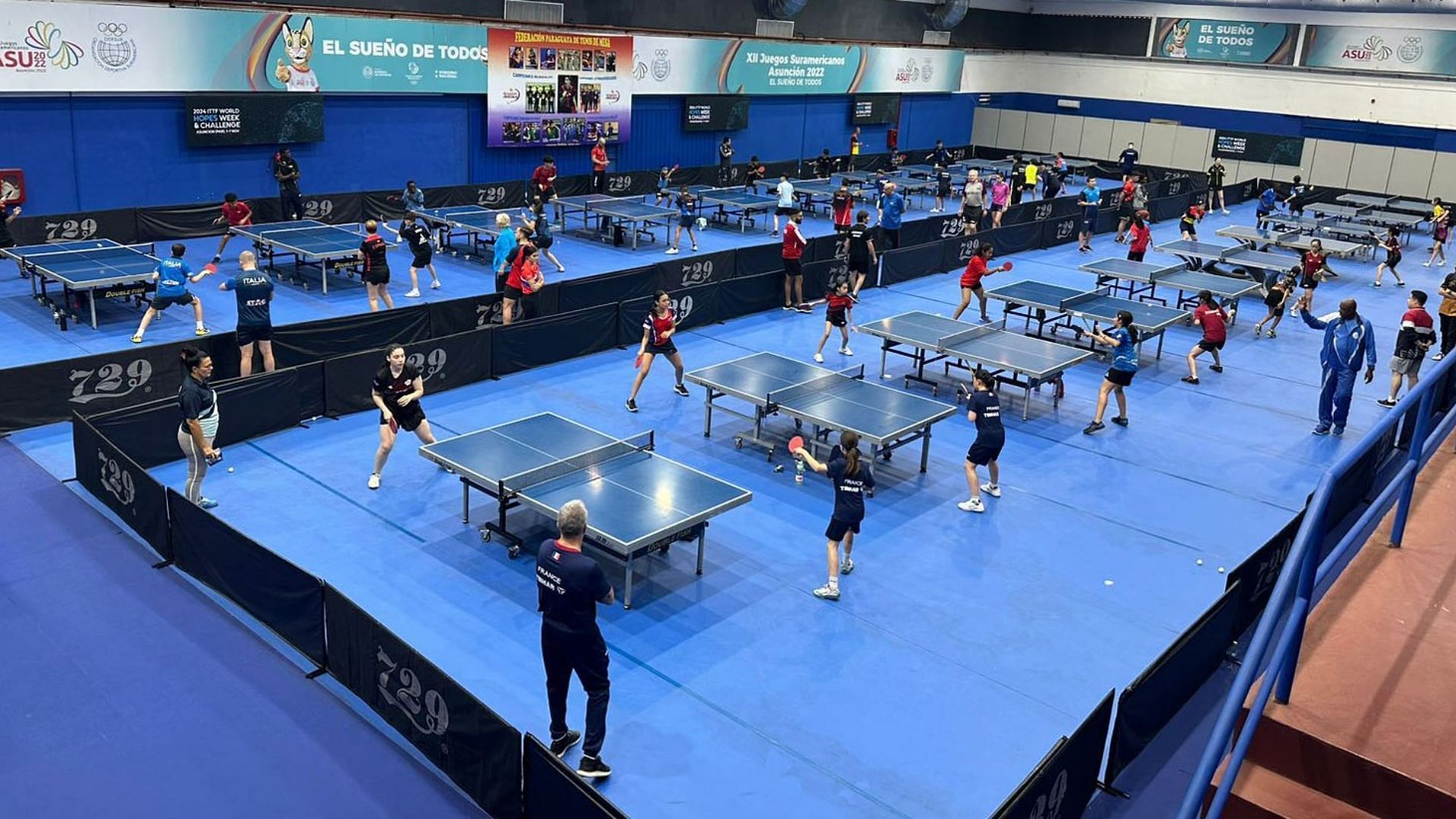
India to compete in ITTF Mixed Team World Cup 2024 from December 1
India will take on a global challenge at the second edition of the ITTF Mixed Team World Cup, competing for the esteemed Guoliang-Sörling Trophy from December 1-8, 2024. The elite tournament, organized by the International Table Tennis Federation (ITTF), will be held in Chengdu, China, bringing together 16 of the world’s best mixed table tennis teams.
As the defending champions, China will host and lead a lineup of formidable opponents from across the world.
India is among a select group of countries participating, joined by teams from Australia, Canada, Chinese Taipei, Egypt, France, Germany, Hong Kong, Japan, South Korea, Poland, Romania, Singapore, Sweden, and the United States.
This year’s competition aims to crown a champion besides promoting gender equality in table tennis, with each team featuring three to four players of each gender.
The ITTF noted in its release:
"The Mixed Team World Cup represents a unique celebration of gender equality in table tennis, with each team featuring between three and four players of each gender."
By combining men’s and women’s singles, doubles, and mixed doubles formats, the tournament offers a unique experience for players and fans alike, celebrating the spirit of mixed team competition.
ITTF announces structured format to test consistency and skill
The ITTF Mixed Team World Cup follows a structured three-stage format, challenging teams to prove their mettle across round-robin and knockout stages. In Stage 1, the 16 teams are divided into four groups, each competing in a round-robin format. Teams are seeded to maintain competitive balance, with the highest-ranked sides placed in different groups.
Following this, the top two teams from each group move to Stage 2, where they will join a single eight-team group for a new round-robin phase. A strategic element is introduced as teams that face each other in Stage 1 do not meet again in Stage 2, though their prior results will carry over.
Explaining the tournament's extensive match count, the ITTF stated:
“This comprehensive format, totaling 52 matches across all stages (24 in Stage 1, 24 in Stage 2, and 4 in Stage 3), guarantees that the eventual champions must demonstrate both consistency through the round-robin phases and excellence in the knockout stage.”
Stage 3 serves as the knockout round, where the top four teams from Stage 2 progress to the semi-finals. Matchups are determined by ranking, with the first-place team facing the fourth and the second-place team competing against the third. The tournament will culminate with a final match to determine the champion and a bronze-medal contest.
The tournament has a unique order of play, starting with mixed doubles, followed by women’s and men’s singles (with players who did not participate in mixed doubles). Teams then play either men’s or women’s doubles, creating opportunities for strategic team configurations. Each fixture is a best-of-three-games format, while team matches end once one side claims victory in eight games.
Reflecting on the excitement and inclusivity of this format, the ITTF highlighted:
“This format has already proven to be a hit with fans and players alike during last year’s inaugural event, combining men’s and women’s singles, doubles, and mixed doubles matches throughout the competition.”